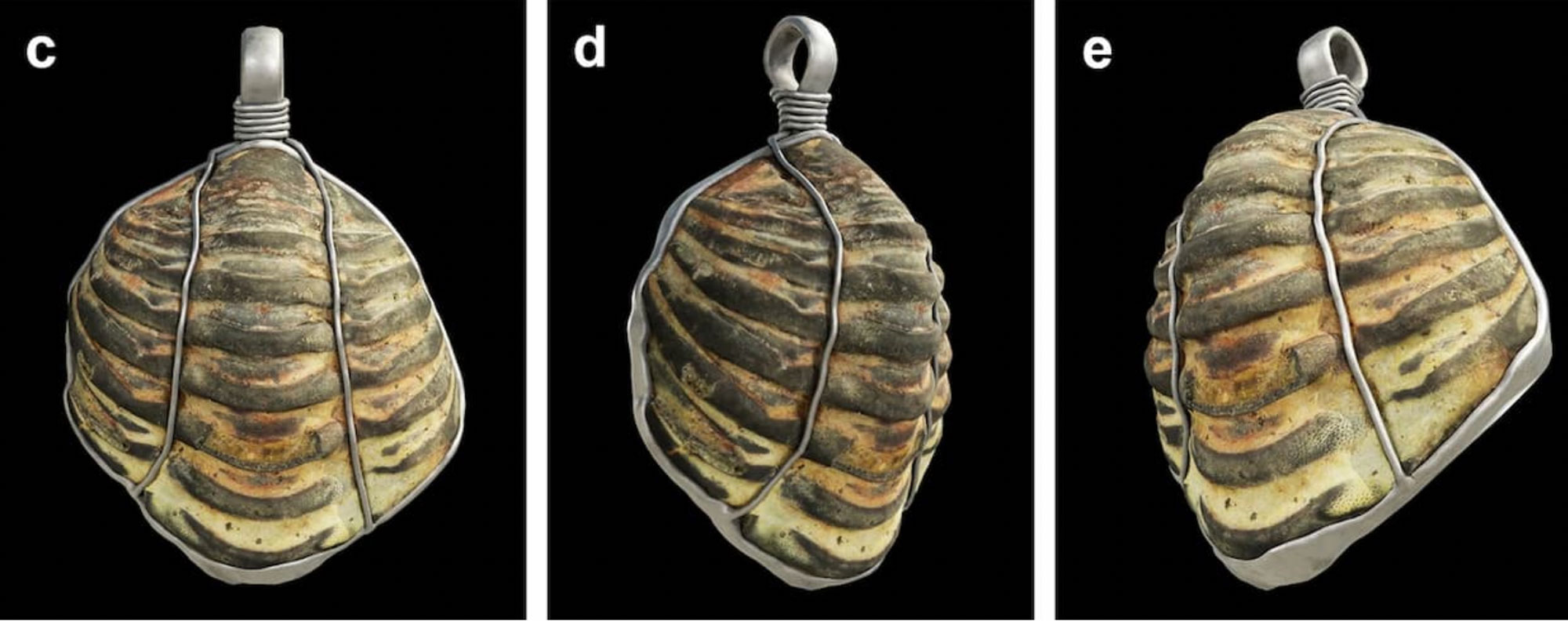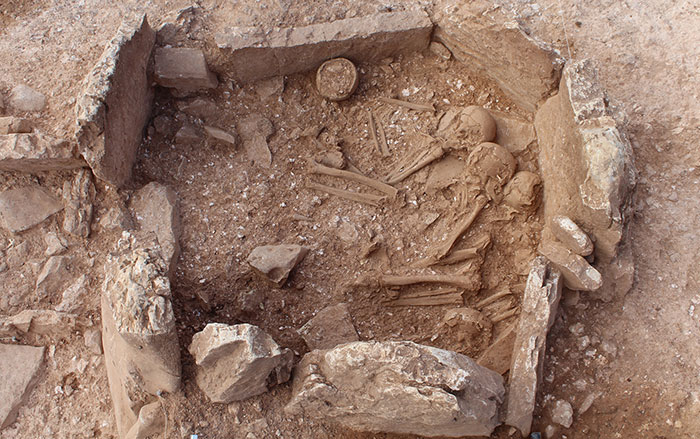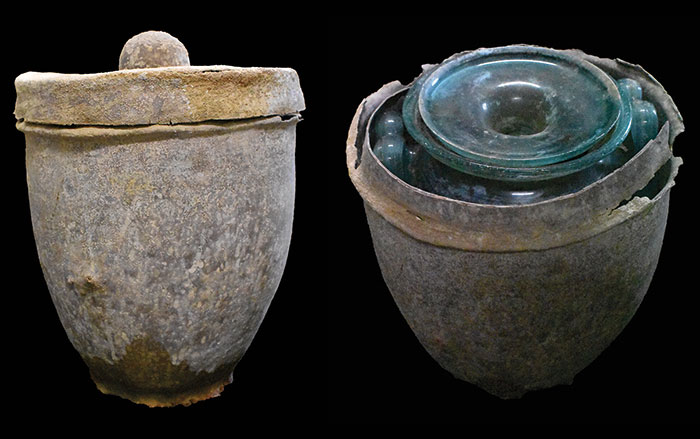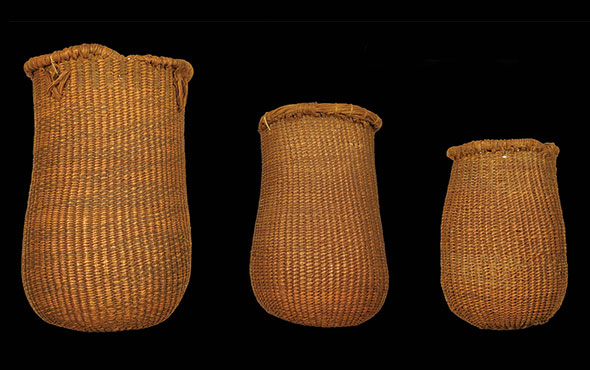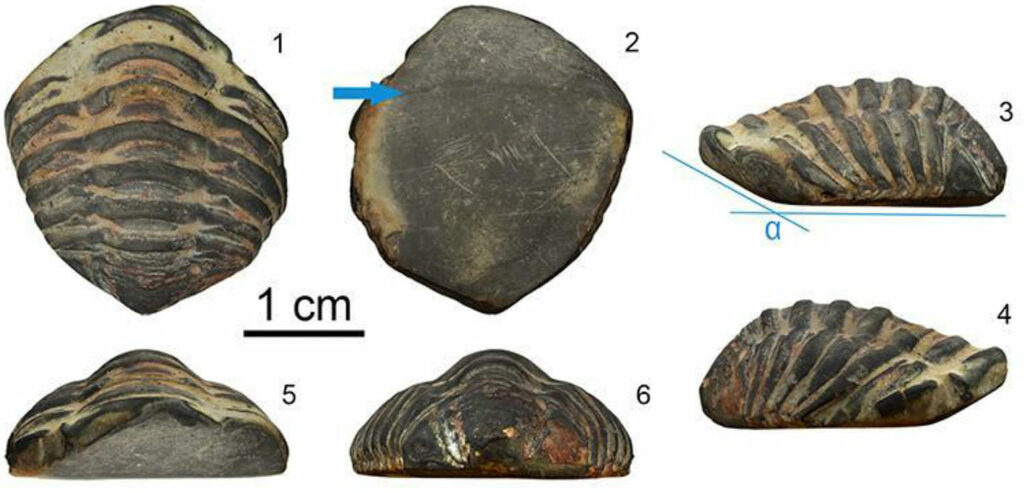
A CIBDÁ DE ARMEA, SPAIN—An exceptionally rare amulet was unearthed at the Roman-era site of A Cibdá de Armea in Spain, according to a report by La Brújula Verde. Archaeologists working there found a small trilobite fossil—a type of marine arthropod that resembles a segmented beetle and went extinct 250 million years ago. Analysis of wear patterns and abrasions on its back indicated that it had been purposefully modified for likely use as a pendant or bracelet or, perhaps, was placed on a domestic altar as an offering. It is the only item of its kind ever found at a Roman site, and only the eleventh similar object found anywhere in the world. Romans, as other ancient cultures did, likely believed that the fossilized creature was instilled with protective or healing properties. Although the trilobite was found by archaeologists in Galicia in northwest Spain, it likely originally came from somewhere in south-central Iberia and was transported across Roman trade routes until it made its way to Armea between the first and the third century a.d. Read the original scholarly article about this research in Archaeological and Anthropological Sciences. To read in-depth about life in Spain after the collapse of the Roman Empire, go to "The Visigoth's Imperial Ambitions."


